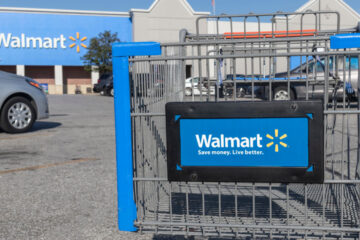It seems as if stories about retailers shutting down are pretty commonplace of late.
And it’s not hard to understand why, if you take a look around.
Related: Huge furniture company closing forever, laying off staff
Drive through your local main street, take a trip to the nearest mall, or bend the ear of any bartender or waitstaff member at your favorite restaurant.
Most of them will tell you that foot traffic isn’t what it once was. And that things have changed.
What’s changed, largely, is customers’ shopping and dining habits.
Those changes have come about pretty fast, too.
A little over five years ago, for example, most of us took main street businesses for granted. Many of them had been in business for decades, and there was a quaint charm to a lot of those smaller mom-and-pop operations that somehow stood the test of time.
Plenty of them relied on passing travelers, shoppers, or idle interest. People would wander into their places of business and buy something, and this more or less kept operations afloat.
That all changed when Covid hit, though. And now, the world of retail just isn’t the same.
Casey’s General Store is shutting down JF Heritage.
Image source: Casey’s General Store
Retailers have to adapt quickly
When many of us sheltered in place during the worst of Covid, businesses that relied on passing foot traffic shriveled up.
Restaurants, convenience stores, smaller retailers, and even some larger brick-and-mortar stores saw profits go to near zero.
More closings:
Iconic retail chain closing nearly 500 storesAnother discount retailer closing over 1,000 storesAnother struggling mall retail chain closing more stores
Since many of them didn’t have the need or ability to scale up e-commerce operations, continuity with customers also disappeared. As a result, many of these businesses went under.
This was the case particularly for convenience stores located near high-traffic thruways. Fewer cars on the road meant less passing traffic to drive sales at otherwise unpopulated stops along the way.
And since many of these convenience stores stock food and other perishable goods, operations were expensive — and eventually almost impossible — to sustain.
Casey’s closing key acquisition
And sometimes, a business will survive the worst of Covid and still struggle.
Such is the case with JF Heritage, a large-scale baked goods production facility that Casey’s General Store acquired in 2024 via its purchase of Fikes Wholesale.
Along with it came its approximately 200 CEFCO-branded convenience stores.
Related: Costco customers frustrated by sneaky new bakery tactic
JF Heritage produces many products, including:
CookiesDoughnutsMuffinsKolachesSaladsSandwichesPizzas Pre-packaged items
But after what Casey’s called “considerable assessment and analysis,” it has decided to shutter JF Heritage entirely.
“Our hearts are heavy as we announce the closing of JF Heritage Food Company. We’ll keep this short and sweet,” JF Heritage wrote in a LinkedIn post about its closure.
“We took immense pride on delivering delicious and innovative food produced in a clean, safe environment…Anyone would be lucky to employ any of these individuals.”
It’s not clear how many employees are affected by the closure.
“We appreciate the team’s work and dedication to the CEFCO stores and have provided support and transition services for everyone impacted,” a spokesperson for Casey’s said.


